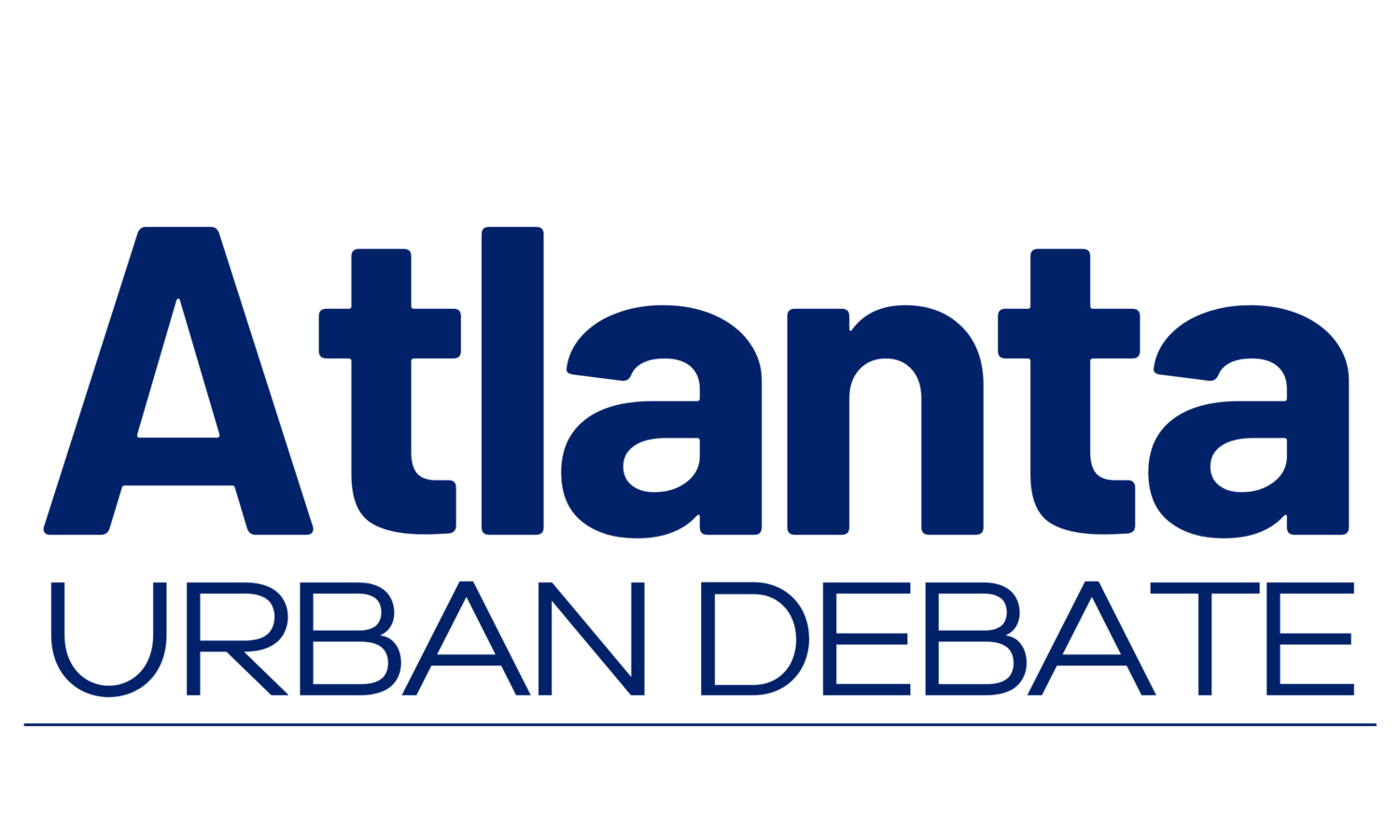The Atlanta Urban Debate League is committed to providing excellent debate education programs, services, and opportunities to diverse students, educators, and members of the community!
HS Open Curriculum
Getting Started in HS Open
What Is Open Evidence Debate?
In open evidence divisions, debaters are allowed to use their own original arguments and evidence, rather than only using arguments from an evidence packet.
For the affirmative, this means being able to use any plan that is based on the resolution.
For the negative, this means being able to use a variety of arguments such as disadvantages, counterplans, kritiks, as well as a few arguments not often seen in the AUDL, such as topicality.
Much of the work in open evidence debates is not just about knowing the same set of arguments well, but being prepared to defend the affirmative against a variety of arguments and having something to say against a variety of affirmative cases when negative.
While this may sound like a lot, a popular way to efficiently prepare for open evidence debates is to use core generics when negative and have answers to core generics ready when affirmative. Core generics are arguments that can apply to a variety of cases, such as spending disadvantages, federalism disadvantages, and 50 states counterplans.
External Resources
These resources can be used both to gain a sense of what arguments to expect in open evidence divisions and to find evidence to use in rounds.
You will need an account on Tabroom.com to access some of these resources. Click here for instructions on how to sign up for a Tabroom account.
GFCA Novice Evidence Packet (gaspeechanddebate.org/novice)
This is evidence provided for use in the closed-packet divisions of GFCA tournaments. While some arguments may be similar to those provided by the AUDL, there are often more affirmative cases and negative off-case positions offered.
This can be a good starting point to see what other affirmatives are being used, as well as the kinds of off-case arguments negative teams are using.
Note that the rules on use are specific to the GFCA's Rookie and Novice divisions, not AUDL HS Open; any evidence here is free to be used in AUDL HS Open.
This packet is a pared down version of the NDCA Novice packet, which is also useful to look at (Google Drive) (Dropbox).
NDCA Open Evidence Project (opencaselist.com/openev) - Requires Tabroom account
This is a collection of evidence released by debate camps across the country. Many teams take evidence put out by camps as a starting point for their own evidence base.
As this is a large evidence repository, it can be helpful to narrow down what's available using the "Files by Type" filter on the sidebar to the right. Some ways to ease into using this could include:
Using the "Case Negatives" filter to look for arguments against the affirmative cases put out by the AUDL and GFCA.
Using the "Disadvantages" filter to either look for new disadvantages to use against known AUDL and/or GFCA affirmatives or add to the evidence of the existing disadvantages provided in the AUDL and/or GFCA packets.
Using the "Counterplans" filter to look for CPs that could go with the AUDL- and/or GFCA-provided disadvantages.
Using the "Impact Files" filter to look for answers to common impacts, such as climate change, economic collapse, and great power wars.
If you are using this to look for specific evidence, note that the search function will give results from previous seasons. Use Ctrl+F after searching to jump to results from the current season (e.g., search for “vaccine”, then use Ctrl+F and put in “2022”).
NDCA HS Policy Wiki (opencaselist.com) - Lower Priority / Advanced, requires Tabroom account
For those who want to go above and beyond in learning about what arguments other teams are using, this wiki can be used to find published citations for other schools' evidence, especially 1ACs and 1NCs. Some will provide entire speech documents, while others will just have the tags and cites without the full underlined text.
This is commonly used in Open Evidence competition outside of the AUDL, but can also be useful to prepare for AUDL tournaments.
